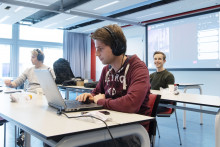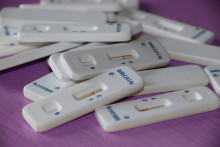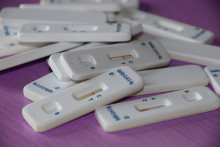As a result of the corona crisis, UT exams cannot be administered in the usual way, in a central location and under the supervision of invigilators. The Executive Board, the crisis team and the examination committees therefore agreed to a so-called guideline remote assessment.
Trust
The UT explicitly does not opt for an ICT solution for digital examination and surveillance. 'We are convinced that our students are smart enough to bypass these systems', is stated in the policy document. During the corona crisis, the UT places trust in the students instead of the technology. That starts with an integrity statement from every student. For each remote exam, the student declares to make the examination to the best of their abilities, 'without seeking or accepting the help of any source that is not explicitly allowed by the conditions of this tests'. In addition, teachers are strongly advised not to hold closed book exams, because it is very unlikely that you will detect fraud in doing so.
If the student breaks the promise and the trust, this will be seen as a serious offense, to which the examination board can attach 'severe consequences', according to the policy document.
Oral testing
The second proposed measure is a 'complementary oral', on the one hand to test the reliability of an exam and on the other hand to give students an extra anti-fraud incentive. Anyone can be asked to explain their answers orally. Teachers may do this randomly or select themselves if they have doubts about the reliability. Random tests are preferred. No student may refuse such a test, the document states.
Preliminary grades
The third measure is that test results are preliminary at first. The examiner must then determine whether these so-called 'crowned grades' are reliable enough to become definitive grades. Or not. This can be done on a group basis, but also individually, if fraud is suspected or if a result deviates from the usual performance of students.
In fact: if the current crisis situation normalizes and certain results are not considered reliable, an examination board can still determine that an exam has to be repeated, in the usual way.








